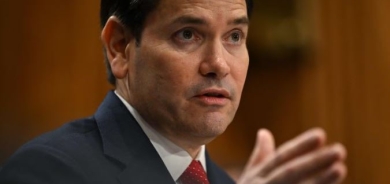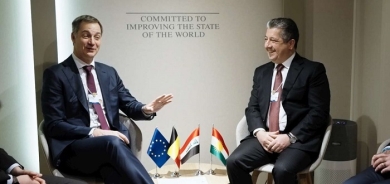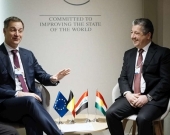Doubts surround ISIS 'FGM edict’

The United Nations’ representative in Erbil, in Iraq’s Kurdistan, claimed Thursday morning that ISIS had recently ordered FGM for all women in the region of Mosul, which has been under their control since mid-June. “This is something very new for Iraq, particularly in this area, and is of grave concern and does need to be addressed,” Jacqueline Badcock told reporters via videoconference. She estimated that 4 million women were under threat.
A terrifying prospect, but far from certain. There are numerous doubts as to Badcock’s sources. On Wednesday, a day before she brought up the matter, a document had started to circulate on social networks. Those who shared it presented it as an edict from ISIS ordering all women under its authority to undergo FGM.
However, this document is fake. It first started circulating online in 2013. On the top right, the date reads “July 11, 2013”, and on the left, it references the Syrian cities of Aleppo and Azaz, cities that were at the time controlled by ISIS – but not anymore.
But it’s not just an old document: it’s a completely faked one. It refers to the organisation’s chief, Abu Bakar al-Baghdadi, as being a “caliph”. However, al-Baghdadi only proclaimed himself “caliph” at the start of Ramadan 2014. The word was not part of the group’s vocabulary before this date. Another troubling detail: the stamp on the bottom left corner is not signed by hand, as is usually the case. Lastly, residents in the Mosul area say they have never heard of this edict.
FGM is not common in the Middle East, and the practice isn’t mentioned in the Quran. It is mostly carried out in Sub-Saharan Africa. It is therefore unlikely that the jihadists would decide to force millions of women to undergo FGM.
FRANCE 24 contacted the UN in Iraq to find out what sources Badcock had based her statements on. They have not yet replied; we will publish their answer when we receive it.
For now, it is thus impossible to ascertain whether Badcock based her statements on the fake document. However, this is a likely scenario, according to Middle East expert Charles Lister, from the Brookings Doha Center. “We cannot say 100% that the UN representative was basing her statements on this document, but it’s quite possible: the document resurfaced on Wednesday afternoon, giving the UN personnel enough time to see it. It would be quite a coincidence if the UN’s source was something else!”
France24














